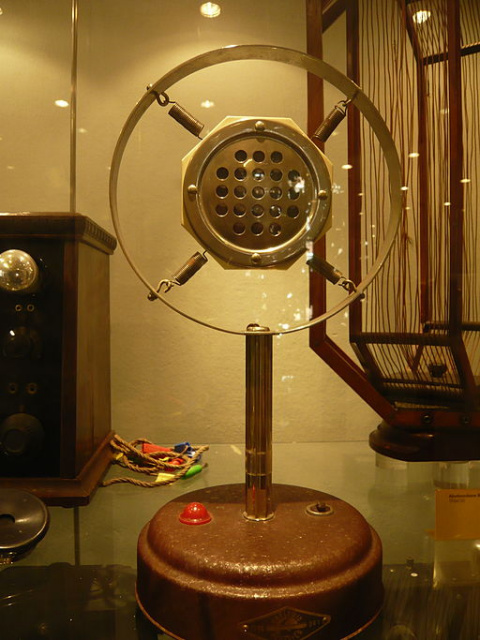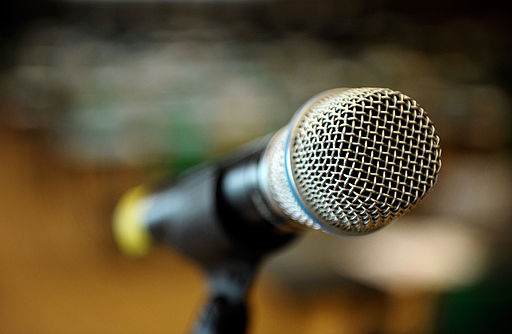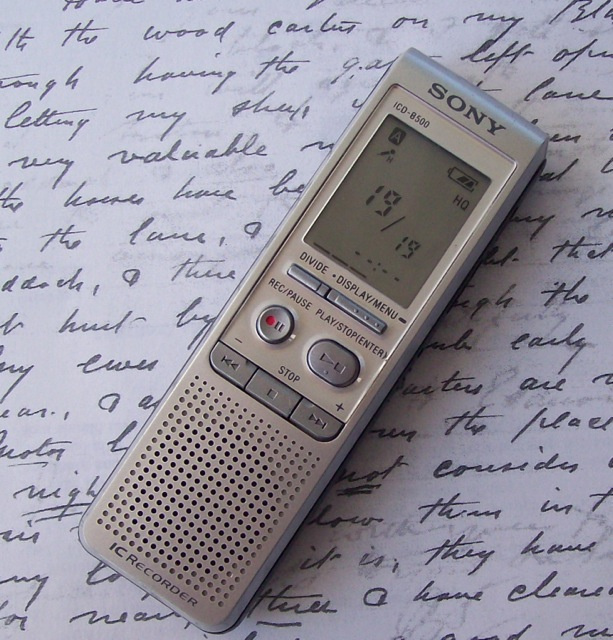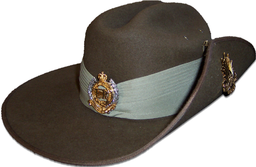Recording etiquette...
What's the etiquette of recording interviews when researching a book – or indeed any other work of journalism, report writing or family history?
How do you get your subject to relax in front of a microphone? To wander freely through the fields of memory and to harvest the information you want?
And how do you, as the interlocutor, go about preparing for the interview, so that you ask the right questions and properly understand the answers?
Asking the right questions...

Such issues were raised in a thoughtful response by Margaret Penfold to my post Matters of Life and Death, where she commented on the usefulness of recordings for accuracy and interpretation ... but also pointed to the attendant problem of some people finding them intrusive.
It’s an interesting question.
As a journalist and author I've been recording interviews for more than 40 years – ever since the first small pocket recorders became available – transcribing at least the important parts, and making a précis and noting times for the rest.
As a matter of form I always ask the subjects if they mind my doing so: assuring them that it's for reference and that I'd check any direct quote with them before publishing.
In some places it's a matter of law that you have to get the subject's permission before recording a telephone interview.
It's certainly true that people sometimes find the presence of a recorder intimidating in face-to-face interviews, though much less so in these days when the digital devices are quite small and unobtrusive.
Overtures...

I usually find, though, that if we begin by talking about pleasant, general topics ... the weather, the family, the idea behind the research project ... people will start to relax.
And once we get to the meat of the topic, and especially if you show a real interest and sympathy in what the people have to say, they'll often forget that the recorder is there at all.
In any case always do a sound test before starting to make sure that the machine works, and check from time to time that it's still running as the interview progresses.
Belt and braces
As a man who prefers the old-fashioned "belt and braces" approach, however, I always write down the key points in a notebook as we're talking ... as I do any supplementary questions that come to mind.
I'm a child of my time, and am always suspicious that the technology might break down ... or more likely that I may push the wrong button. It's happened too often before.
* * *
Next ... Preparing for the interview.
Photo credits
Microphone 1: photo by Ricardo Reis from Lisboa, Portugal (p1020051 Uploaded by tm) [CC-BY-SA-2.0 (http://creativecommons.org/licenses/by-sa/2.0)], via Wikimedia Commons
Microphone 2: photo by Johannes Jansson/norden.org [CC-BY-2.5-dk (http://creativecommons.org/licenses/by/2.5/dk/deed.en)], via Wikimedia Commons
* * *
Sound tracks 2
The Other Side of the Microphone
As with everything, the value researchers take from recorded interviews is in proportion to the effort we put into preparing for them.
 Time is never wasted going over your material before the interview ... refreshing your mind by reading relevant documents, previous transcripts and secondary sources ...
Time is never wasted going over your material before the interview ... refreshing your mind by reading relevant documents, previous transcripts and secondary sources ...
mulling over questions and jotting them down ...
eciding the main themes that you want to discuss with the interviewee.
In my experience, the aim is to become sufficiently familiar with your topic that you can actually listen to what is being said on the other side of the microphone…
to allow the questions and themes to arise naturally from the conversation.
And of course the more confident you are with the subject, the more the person you're speaking to is likely to relax and offer their own confidences in return.
Knowing how to listen...
How often have we seen a good television interview ruined by a presenter clutching a sheet of questions, and ploughing on down the list almost oblivious to the responses being given?
War could be declared, you sometimes feel, and the host would follow up with an enquiry about the sports results or the price of eggs.
In a successful interview, written questions are there as a guide – a reminder to ensure you've covered the key points.
...and when to shut up
But the most important quality is this ability to listen ... to follow new leads that may be opened in the discussion ... to judge the right time to ask the difficult or sensitive questions.
And above all, when the interviewee is giving you gold, it means knowing when to shut up ... to let people speak in their own way and in their own time, with just a gentle hint from you, if necessary, to nudge them along a little.
These issues were very much in my mind this week when I interviewed a lady of 93, said to have been the fiancée of a young man in the book I'm presently writing, who was killed during the Second World War.
Nan
I'd spent the evening before re-reading the letters he'd written to his family from Malaya, mentioning Nan frequently and buying her gifts ... though something didn't seem quite right in the tone, and I made a note to raise it in our discussion.
Well, I took one of my books as a gesture of goodwill and to establish my bona fides.
Nan was quite happy with the little digital recorder and – after the preliminaries – away she went talking of her girlhood and the past, answering my questions, until we came round by degrees to Jack, his family, and what sort of a man he was.

It was then, when those years were fully alive in her memory, that I felt able to ask my question: Were they just friends, or was it something more than that?
Here, Nan gave me her confidence. And I kept utterly silent, praying to God the machine was still recording.
Australian Army slouch hat
Gold...
They were driving back to town from the mountains one night in 1940, when Jack stopped the car and asked her to marry him.
Nan told him that she loved him very much but added, "...I don't think I can." And he’d replied, "That's all right ... I'll join up." It was the last time they saw each other.
They weren't engaged. Jack was still trying to woo her with all those letters and gifts from Singapore.
And it made sense of a sad, self-deprecating remark in one of the letters to his parents at home that "I'm the sort of man that women shy away from."
It's a poignant human story. And it's going to enrich the next part of my book wonderfully. Thank you Nan. And thank you little recorder.
Next: After the interview.
Photo credits:
Tape recorder: Author photo.
Australian Army ceremonial slouch hat: By Kommando at en.wikipedia [Public domain], from Wikimedia Commons
